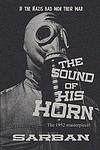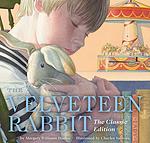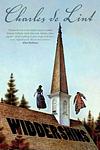The Greatest Czech, Unknown "Fiction" Books Since 1900
Click to learn how this list is calculated.
This list represents a comprehensive and trusted collection of the greatest books. Developed through a specialized algorithm, it brings together 300 'best of' book lists to form a definitive guide to the world's most acclaimed books. For those interested in how these books are chosen, additional details can be found on the rankings page.
Genres
Countries
Date Range
Reading Statistics
Click the button below to see how many of these books you've read!
Download
If you're interested in downloading this list as a CSV file for use in a spreadsheet application, you can easily do so by clicking the button below. Please note that to ensure a manageable file size and faster download, the CSV will include details for only the first 500 books.
Download-
1. The Trial by Franz Kafka
The book revolves around a bank clerk who wakes one morning to find himself under arrest for an unspecified crime. Despite not being detained, he is subjected to the psychological torment of a bizarre and nightmarish judicial process. The story is a critique of bureaucracy, exploring themes of guilt, alienation and the inefficiency of the justice system.
-
2. The Unbearable Lightness of Being by Milan Kundera
Set against the backdrop of the Prague Spring period of Czechoslovak history, the novel explores the philosophical concept of Nietzsche's eternal return through the intertwined lives of four characters: a womanizing surgeon, his intellectual wife, his naïve mistress, and her stoic lover. The narrative delves into their personal struggles with lightness and heaviness, freedom and fate, love and betrayal, and the complexities of human relationships, all while offering a profound meditation on the nature of existence and the paradoxes of life.
-
3. The Metamorphosis by Franz Kafka
The book tells the story of a man who wakes up one morning to find himself transformed into a giant insect. His transformation causes him to lose his job and become ostracized from his family, who are horrified and repulsed by his new form. As he grapples with his new reality, he becomes increasingly isolated and starts to lose his sense of humanity. The book explores themes of alienation, guilt, and identity, and is a profound examination of the human condition.
-
4. The Castle by Franz Kafka
This novel presents the story of a man who arrives in a village and struggles to gain access to the mysterious authorities who govern it from a castle. The protagonist, a surveyor, faces the constant frustration of his efforts to make contact with the elusive authorities and integrate into village society. The book explores themes of alienation, bureaucracy, the seemingly endless frustrations of man's attempts to stand against the system, and the futile pursuit of an unobtainable goal.
-
5. Franz Kafka: The Complete Stories by Franz Kafka
This collection of stories offers a comprehensive look at the work of a renowned author, known for his surreal and often unsettling depictions of modern life. The stories explore themes of existential anxiety, guilt, and absurdity, often through narratives in which ordinary people face extraordinary, inexplicable circumstances. The collection showcases the author's unique style and his profound influence on 20th-century literature.
-
6. The Good Soldier Svejk by Jaroslav Hašek
"The Good Soldier Svejk" is a satirical novel set during World War I, following the story of a Czech soldier in the Austro-Hungarian army. Svejk, the protagonist, is a simple-minded, good-natured man who is frequently arrested for bungling jobs due to his apparent idiocy. Despite his constant run-ins with authority, Svejk manages to maintain his cheerful disposition and even takes advantage of his perceived stupidity to manipulate the system. The book offers a humorous and critical perspective on the absurdity of war and the incompetence of military bureaucracy.
-
7. Amerika by Franz Kafka
This novel tells the story of a young immigrant, Karl Rossmann, who after an unfortunate incident is sent by his parents to America. The narrative follows his journey through a strange new world, where he encounters a variety of eccentric characters and experiences a series of bizarre and often surreal situations. Throughout his journey, the protagonist struggles with feelings of alienation and the harsh realities of the American Dream, while trying to navigate the complexities of life in a foreign land.
-
8. The Book of Laughter and Forgetting by Milan Kundera
This novel is a blend of fiction, autobiography, and philosophical musings that explores the nature of forgetting, the power of laughter, and the struggle for personal and political freedom. Set against the backdrop of the political turmoil in Czechoslovakia in the 20th century, it follows the interconnected stories of various characters, including a man who is expelled from the Communist Party, a young woman in love with a man whose father was a political prisoner, and a couple who flee to America. Throughout, the book delves into the ways in which personal and collective memories shape identity and history.
-
9. The Joke by Milan Kundera
"The Joke" follows the life of Ludvik Jahn, a man expelled from the Czechoslovak Communist Party, his university, and the army for a harmless joke he sends in a postcard to a girlfriend. The narrative explores his life before, during, and after his punishment, and his attempts to exact revenge on those who wronged him. Set against the backdrop of the Prague Spring and the Soviet Invasion, the novel delves into the themes of political satire, the absurdity of totalitarianism, and the individual's struggle against an impersonal and oppressive system.
-
10. War with the Newts by Karel Čapek
The novel is a satirical science fiction tale that explores the discovery of a species of intelligent giant newts. When humans realise they can exploit these creatures for economic gain, they are enslaved and used for labor and military purposes. The newts ultimately rebel, leading to a global war. The book serves as a critique of various political, economic and ideological systems, including colonialism, capitalism and fascism.
-
11. Closely Watched Trains by Bohumil Hrabal
"Closely Watched Trains" is a darkly humorous tale set in Nazi-occupied Czechoslovakia during World War II. It follows the life of a young, inexperienced railway worker who is struggling with his sexual awakening while dealing with the harsh realities of war. The novel is a poignant exploration of the absurdity of life, the tragicomedy of human existence, and the power of ordinary people to resist oppression.
-
12. Legend by David Gemmell
In a post-apocalyptic world, an aging warrior known as Druss comes out of retirement to defend his homeland from invading hordes. Despite his advanced age, he is still a formidable fighter and is revered as a living legend. As he prepares for a seemingly impossible battle, he must confront not only his enemies but also his own personal demons and the specter of his own mortality. The novel is a compelling blend of action, adventure, and introspection, exploring themes of heroism, honor, and the human capacity for courage in the face of overwhelming odds.
-
13. The Sound Of His Horn by Sarban
"The Sound of His Horn" is a dystopian science fiction novel set in a future where the Nazis have won World War II. The story follows Alan Querdilion, a British prisoner of war who wakes up in a bizarre alternate reality ruled by a cruel and sadistic Nazi regime. As he navigates this nightmarish world, Querdilion must confront his own survival instincts and grapple with the moral implications of his actions. With its haunting atmosphere and thought-provoking exploration of power and humanity, the novel offers a chilling and unsettling reflection on the consequences of totalitarianism.
-
14. I Served The King Of England by Bohumil Hrabal
"I Served The King Of England" is a captivating novel that follows the life of a young Czech waiter named Ditie, who dreams of becoming a millionaire and serving the highest-ranking clientele. Set against the backdrop of World War II and the Communist regime, the story takes readers on a journey through Ditie's experiences in various hotels and restaurants, his encounters with eccentric characters, and his pursuit of love and success. With humor, wit, and a touch of satire, the book explores themes of ambition, identity, and the impact of historical events on an individual's life.
-
15. The Velveteen Rabbit by Margery Williams
"The Velveteen Rabbit" is a heartwarming children's book about a stuffed rabbit who longs to become real. Through his encounters with other toys and his friendship with a young boy, the rabbit learns about love, loyalty, and the true meaning of being alive. With beautiful illustrations and a touching narrative, this timeless tale teaches valuable lessons about the power of imagination and the transformative nature of love.
-
16. Widdershins by G. Oliver Onions
"Widdershins" is a gripping psychological thriller that follows the life of a troubled young woman named Alice. Haunted by a traumatic childhood event, Alice finds herself drawn into a mysterious world of dark secrets and supernatural occurrences. As she delves deeper into the enigmatic past of her family, Alice must confront her own demons and unravel the truth before it consumes her. With its atmospheric setting and complex characters, "Widdershins" is a chilling tale of suspense and self-discovery.
-
17. The Last Bouquet by Marjorie Bowen
"The Last Bouquet" by Marjorie Bowen is a captivating historical novel set in 18th-century France. The story follows a young woman named Genevieve, who finds herself caught in the midst of the French Revolution. As chaos and violence engulf the nation, Genevieve's life takes a dramatic turn when she becomes entangled with a group of revolutionaries. Faced with difficult choices and dangerous secrets, she must navigate a treacherous path to protect her loved ones and find her own freedom. Bowen's vivid storytelling and rich historical detail bring this tumultuous period to life, offering a compelling tale of love, sacrifice, and resilience.
-
18. December Bride by Sam Hanna Bell
"December Bride" is a poignant and captivating novel set in rural Northern Ireland during the early 20th century. The story follows the life of a young woman named Sarah, who finds herself caught between tradition and her own desires. As she navigates the complexities of love, family, and societal expectations, Sarah must make difficult choices that will shape her future. With its vivid descriptions and richly drawn characters, this book explores themes of identity, sacrifice, and the enduring power of love.
-
19. Black List, Section H by Francis Stuart
"Black List, Section H" is a gripping and thought-provoking novel that delves into the complex themes of identity, loyalty, and the consequences of war. Set during World War II, the story follows a group of individuals who find themselves entangled in a web of espionage and betrayal. As they navigate the treacherous landscape of Nazi-occupied Europe, their loyalties are tested, and they must confront the moral dilemmas that arise when faced with impossible choices. With its rich character development and atmospheric setting, this book offers a compelling exploration of the human spirit in the face of adversity.
-
20. The Engineer of Human Souls by Josef Škvorecký
The novel is a semi-autobiographical narrative of a Czechoslovakian writer who has become a professor at a Canadian university, teaching American literature. The narrative switches between his current life in Canada and his memories of the past in Czechoslovakia, including the Nazi occupation and the Communist regime. The book presents a complex portrayal of the life of an intellectual in exile and the challenges of cultural assimilation, while also exploring themes of love, politics, and the power of literature.
-
21. Cutting It Short by Bohumil Hrabal
Set in a small Czech town during the 1920s, the narrative follows the life of a vivacious and free-spirited young woman married to the town's brewery manager. Her playful and unconventional behavior often leads to humorous and sometimes scandalous situations, as she navigates through the social norms and expectations of the time. The story captures the charm and eccentricities of rural life through a series of anecdotes, reflecting on the themes of freedom, tradition, and the joy of the everyday. The protagonist's zest for life and her interactions with the colorful cast of characters create a whimsical and endearing portrait of a community on the brink of modernization.
-
22. Too Loud A Solitude by Bohumil Hrabal
The narrative centers around an elderly man who has spent his life compacting paper and books into bales in a decrepit cellar, using a hydraulic press. Despite the menial nature of his job, he has cultivated a deep love and profound knowledge for literature, philosophy, and art from the books that pass through his hands, many of which he rescues from destruction. The story is a poignant exploration of the power and resilience of the human spirit in the face of a dehumanizing, totalitarian regime, and a meditation on the enduring value of art and the written word. The protagonist's intellectual journey and his resistance to the oppressive forces around him serve as a metaphor for the survival of culture and individuality under oppressive conditions.
-
23. Dervish And The Death by Meša Selimović
"Dervish and the Death" is a thought-provoking novel that delves into the complex themes of identity, morality, and the human condition. Set in the 18th century Ottoman Empire, the story follows a dervish, Sheikh Nuruddin, as he navigates the turbulent world of politics, power, and religion. Through his encounters with various characters, including the enigmatic Death, the dervish grapples with his own beliefs and questions the nature of existence. Selimovic's masterful storytelling and introspective prose make this novel a captivating exploration of life's fundamental questions.
-
24. The White Ship by Chinghiz Aitmatov
"The White Ship" by Chinghiz Aitmatov is a poignant and thought-provoking novella set in a remote village in Kyrgyzstan. The story follows a young shepherd named Mati, who embarks on a dangerous journey to rescue his fellow villagers after a devastating avalanche. Through Mati's experiences, the author explores themes of courage, sacrifice, and the resilience of the human spirit in the face of adversity. With beautiful prose and vivid descriptions, Aitmatov paints a vivid picture of the harsh yet enchanting landscapes of Kyrgyzstan while offering a powerful commentary on the strength of community bonds.
-
25. A Naughty Boy by G'afur G'ulоm
"Shum Bola" by G'afur G'ulоm is a captivating and thought-provoking novel set in a remote village in Uzbekistan. The story revolves around the life of Shum Bola, a young and ambitious shepherd who dreams of escaping the confines of his traditional rural life. Through his journey, the novel explores themes of love, sacrifice, and the clash between tradition and modernity. With vivid descriptions and rich character development, "Shum Bola" offers a compelling narrative that transports readers to a world filled with cultural complexities and personal struggles.
Reading Statistics
Click the button below to see how many of these books you've read!
Download
If you're interested in downloading this list as a CSV file for use in a spreadsheet application, you can easily do so by clicking the button below. Please note that to ensure a manageable file size and faster download, the CSV will include details for only the first 500 books.
Download






















